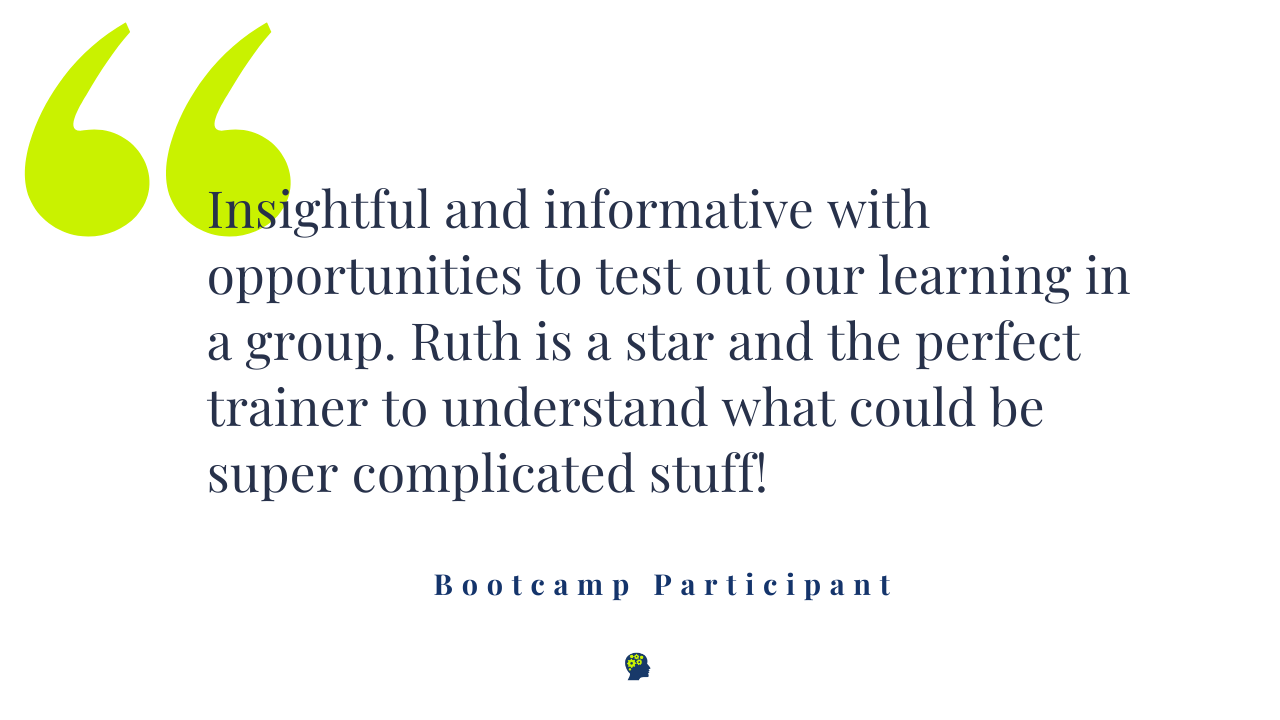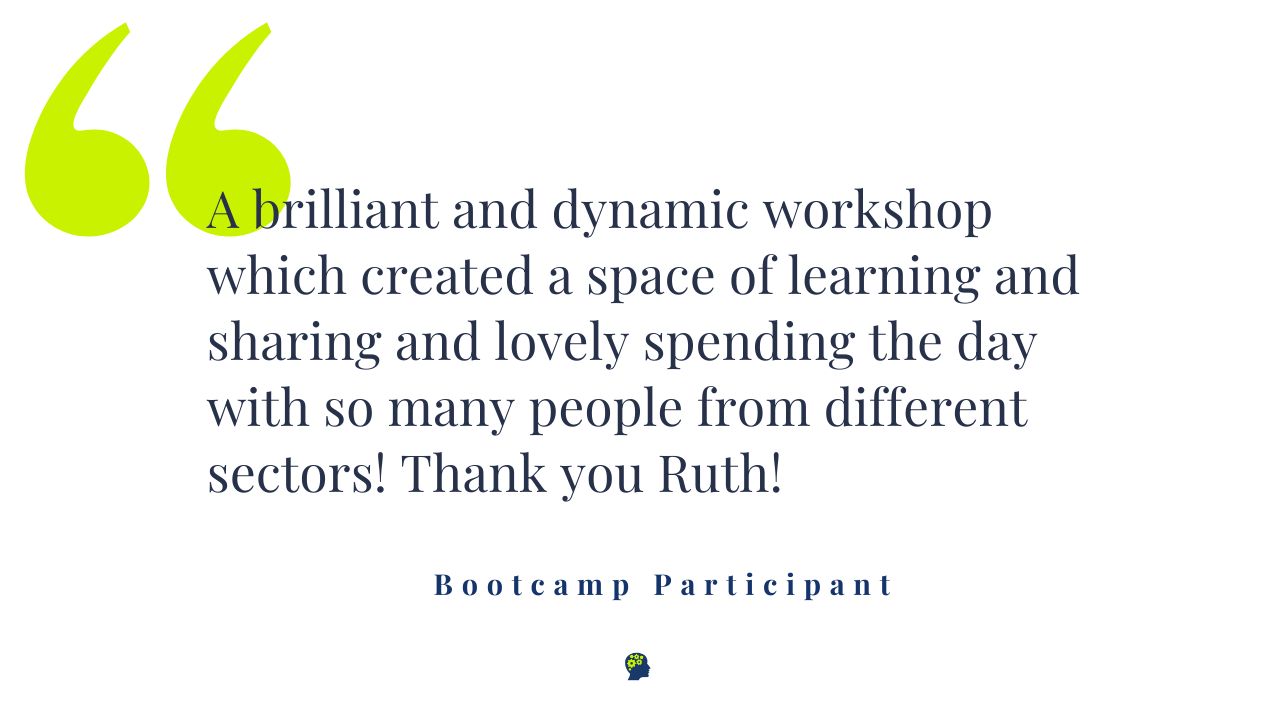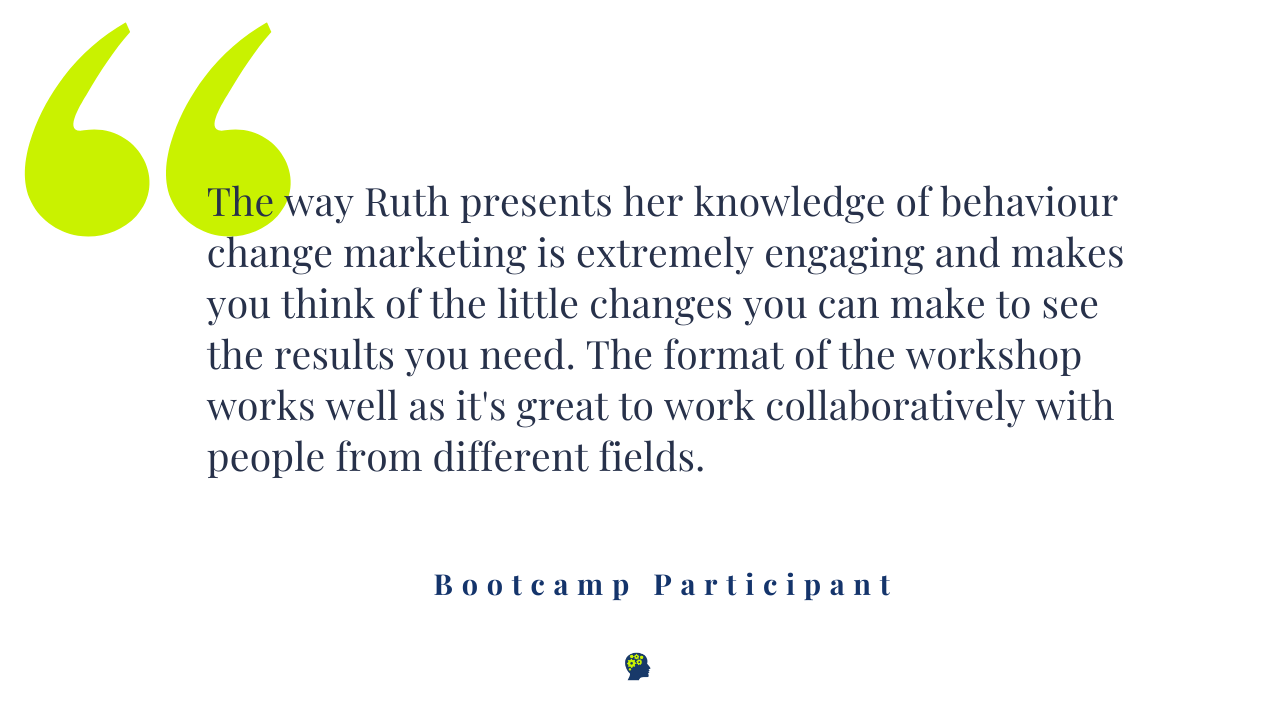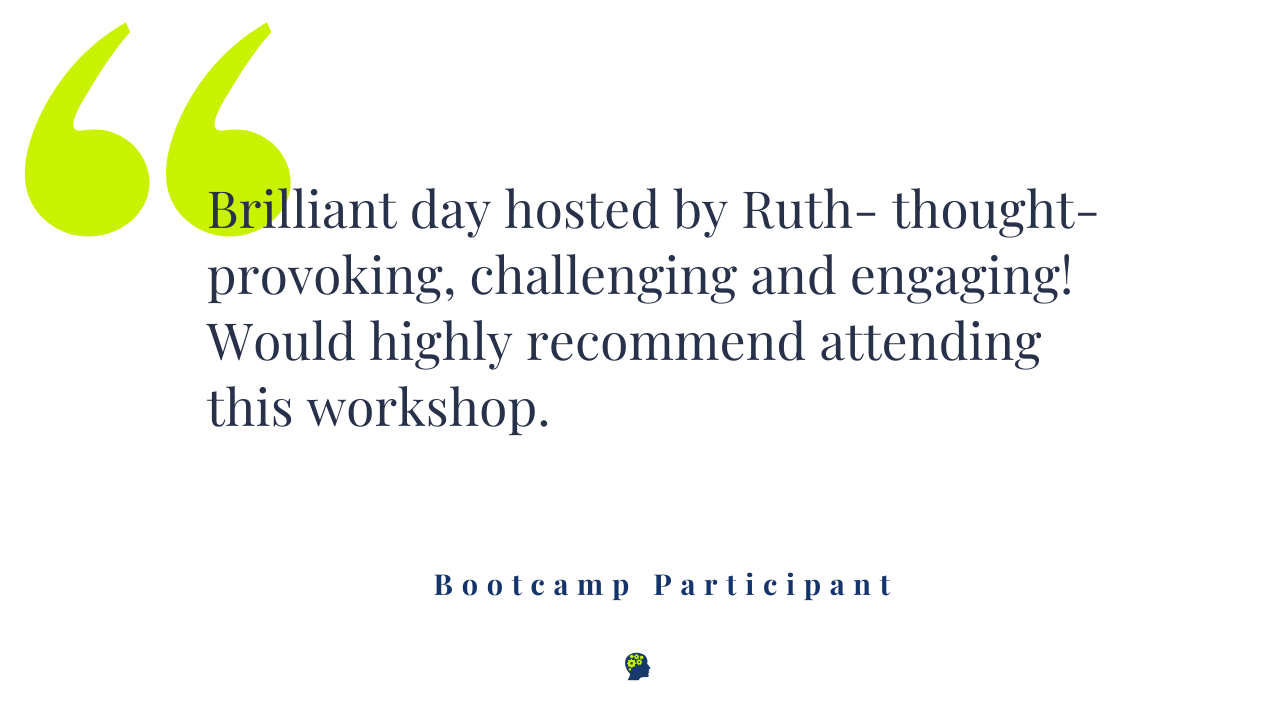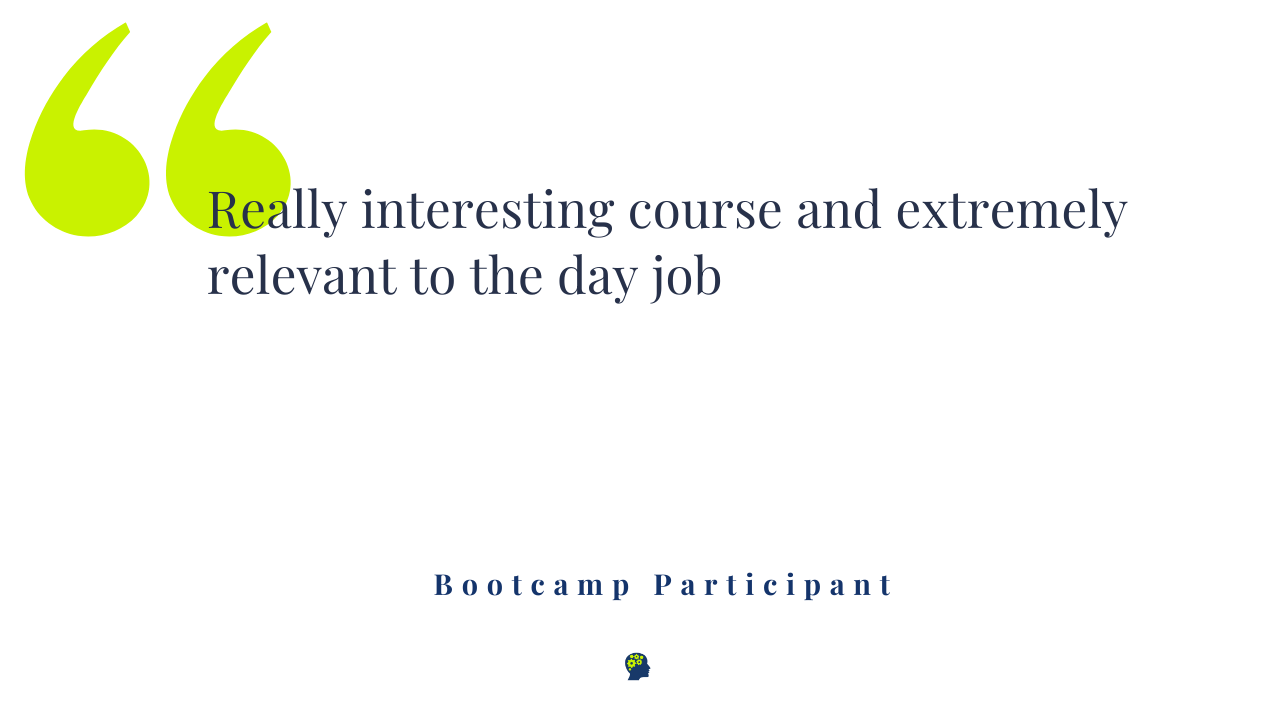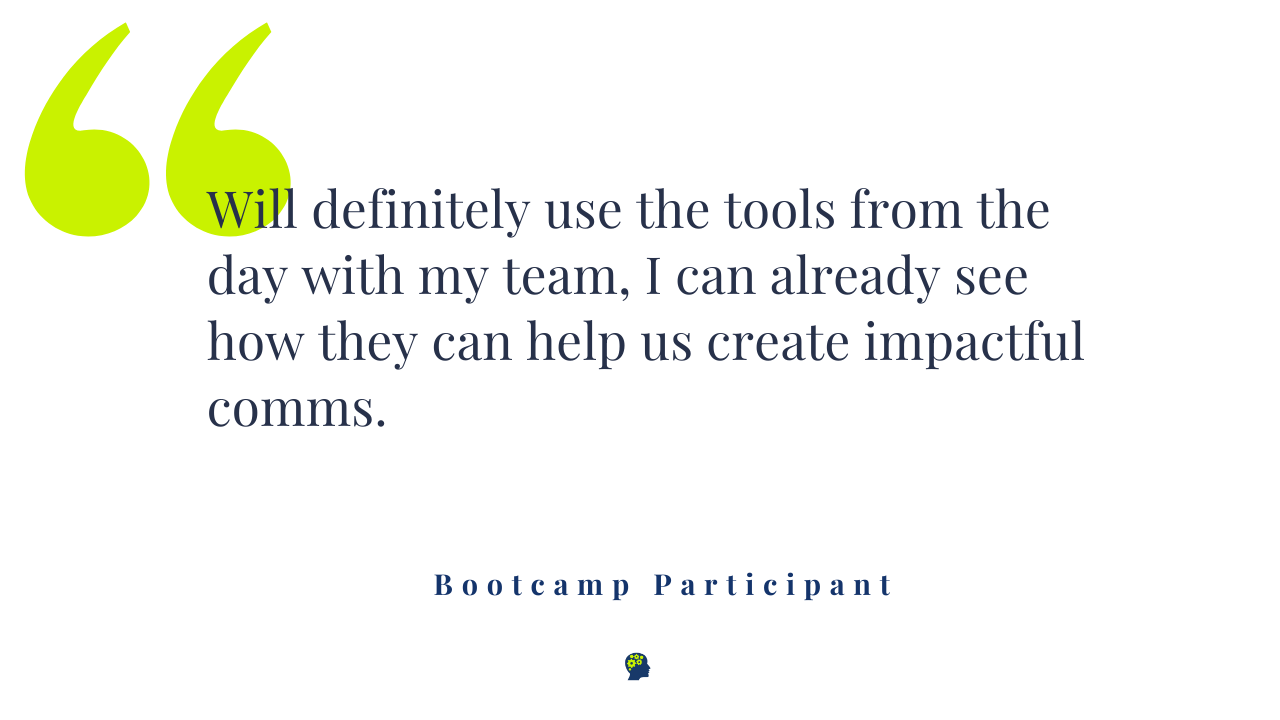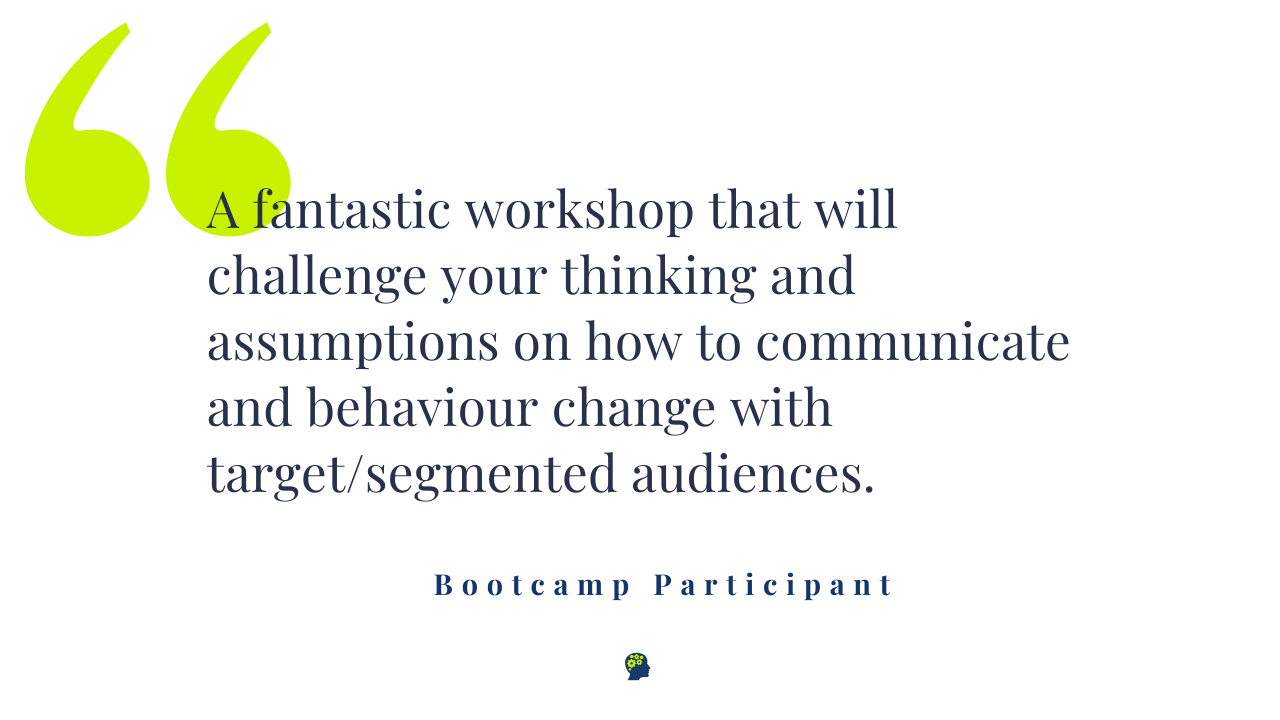Behavioural Insights That Put Hidden Voices at the Centre
We work with organisations that seek to improve health and reduce health inequalities.
Whether you are recommissioning a service, developing a marketing specification, creating a campaign or redesigning a service, we use behavioural science to ensure your decisions are rooted in evidence and lived experience.
Our team applies leading behaviour change frameworks and tools, including COM-B, E.A.S.T., Social Marketing, Theory of Planned Behaviour, Stages of Change, and Behavioural Economics, alongside qualitative research to surface hidden voices and turn insight into action.
Trusted by 300+ organisations to deliver behavioural insights and training - including NHS and Public Health teams across England, Wales and Scotland.
"A world where empathy guides decisions.
Where hidden voices are heard.
Where change ends health inequality."
20+
years of health and public health delivery
16,000+
Listeners to BrainFuel Podcast
500+
Pros trained in Behaviour Change
How We Can Work Together.
Behaviour Change Marketing Bootcamp -No available spots until September 2026
One powerful day of insight, frameworks and practice - focus on health Misinformation and how to use AI and Behavioural Science to build trust and shift from awareness to action.
Includes the brand new Behaviour Change Marketing Starter Pack!Built for Busy Teams.
Behavioural Insights
Our most popular entry point. A Behavioural Insight Deep Dive uses our Look, Listen, Learn©️ process to uncover the drivers of behaviour and give you a clear, evidence-based picture of your audience.
Commissioners use Deep Dives to strengthen recommissioning cases and service redesign. Providers use them to win tenders and demonstrate credibility. Campaign teams use them to kick-start new programmes with real audience insight, not assumptions.
Perfect for recommissioning cycles, tender submissions, and population-level behaviour change campaigns.
Request details
Request detailsBehavioural Insight Partnership
Ongoing audience intelligence to guide your strategy.
A living stream of insights that keeps your programmes aligned, responsive and effective. Beyond a one-off project, teams can partner with us throughout the year or length of your programme. We provide a rolling stream of qualitative intelligence and advisory sessions to keep your change programme, service or campaign responsive and effective - in real time.
Delivered as a rolling programme, this gives you fresh narratives, case studies, and insights throughout the year to keep your strategies grounded in lived experience.
Perfect for strategy, change programmes, campaigns and services that need a regular deep understanding of their audience. Especially Smoking Services, Sexual Health, Weight Management service planning, Physical Activity/Move More programmes.
Agency Partnerships
Your Behavioural Insight Arm
You’re brilliant at creative and strategy. But when it comes to public health contracts, commissioners increasingly expect campaigns to be backed by behavioural insights and lived experience. That’s where we come in.
With over 20 years’ experience in public health, we embed seamlessly into your team as your behavioural insight partner. We bring frameworks like COM-B, EAST, and behavioural economics, combined with qualitative research, to uncover what really drives behaviour.
Get in touch
Case Studies & Blog
